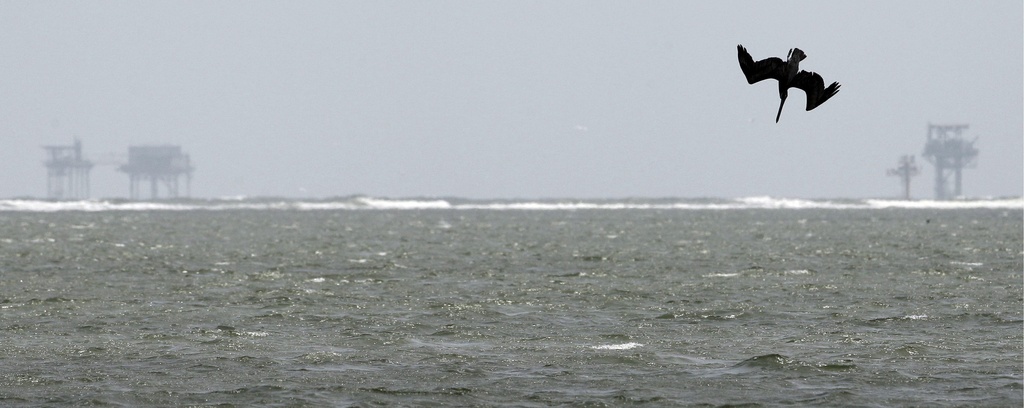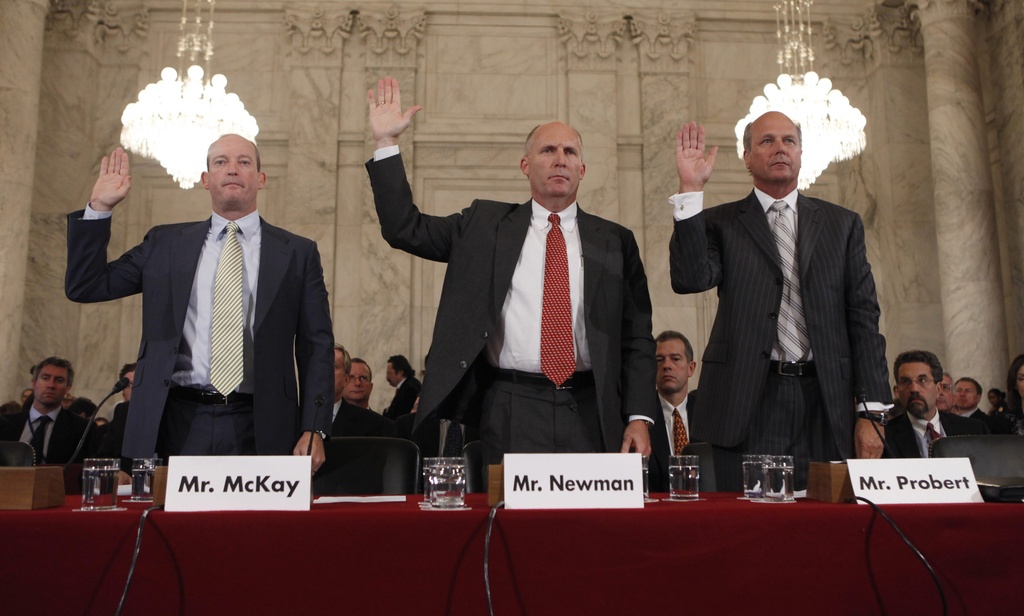Transocean drops Swiss anchor with listing

Embattled oil drilling contractor Transocean hopes to boost its standing in Switzerland by joining an elite list of Swiss stock market listed firms later this month.
The company, which has been embroiled in the recent Gulf of Mexico oil spill, will be fast-tracked to the leading blue chip Swiss Market Index (SMI) and the Swiss Leader Index (SLI) on June 21.
The Swiss stock exchange (SIX) has ignored the controversy surrounding the firm and has decided to go ahead with the extraordinary inclusion after observing share movements on a broader index since the end of April.
An explosion on the Transocean-owned Deepwater Horizon oil rig on April 20, which claimed 11 lives and has caused massive pollution, took place on the same day that the firm’s shares started trading on the Swiss stock exchange.
“With our company headquarters located in Switzerland since late 2008, we believe the listing of Transocean’s shares on SIX is an excellent way to increase interest in Transocean among Swiss and European investors and re-affirm our presence as a Swiss company,” president and chief executive Steven Newman said in a statement at the time.
The share price and market capitalisation of the company have since dived around 40 per cent, but SIX opted to include Transocean on the leading index of the top 20 shares after seeing huge trading interest in the first few days.
Increased volatility
Transocean’s inclusion in the SMI – that also features heavyweights such as Nestlé, Roche and Credit Suisse – will knock insurance giant Swiss Life out of the index.
Some observers have pointed out that the inclusion of a commodities firm could make the index more volatile with the fluctuating price of oil and the risk of more accidents. This could put pension funds that track the SMI in the firing line, as they generally tend to favour more conservative investments.
But Zurich Cantonal Bank analyst Martin Schreiber does not think the move to include Transocean is necessarily a bad thing.
“The SMI will become a bit more volatile and cyclical, but it is not a bad move because it brings it in line with other global indices,” he told swissinfo.ch.
“The SMI is a very defensive index and the inclusion of Transocean will add more diversification away from pharmaceuticals and food.”
The entry of Transocean, which had a market capitalisation of around SFr31 billion ($27 billion) before its slump, will give SIX a boost after a quiet period of listings in the last two years.
Possible sanctions
SIX confirmed plans to fast-track the oil drilling giant with an extraordinary inclusion to the SMI after the company met criteria for market value and trading volumes.
But the plummeting share price from SFr101 at the end of April to SFr54 in early June was not part of the script.
Share prices have since recovered to nearly SFr60 and Schreiber believes a current fair market value would be SFr62. But he warned that the industry may face an expensive regulatory upheaval in the wake of the Deepwater Horizon disaster.
“The entire industry may face margin pressures in the long-term. We are witnessing a fundamental change in political sentiment that could result in new regulatory pressures,” he said.
Transocean is still facing possible sanctions concerning the oil rig explosion and was one company summoned to a United States Senate hearing last month. US President Barack Obama has personally waded into the affair, recently saying he was “furious” at the chain of events.
The blame game
Transocean owned the Deepwater horizon oil rig that was leased to BP. Another company, Halliburton, is also facing blame as it built casing and valves for the well.
But the shift of attention towards BP could help Transocean shares to recover, according to Emmanuel Fragnière, a commodities expert at the School of Business Administration in Fribourg.
The risk of reputational damage now most of all affects BP, which is the most prominent company in the line of fire, he told swissinfo.ch. “BP also faces a bigger problem because it is better known and more visible to the public.”
But quite aside from the lost revenue from the destroyed Deepwater Horizon rig, Schreiber is not so convinced that Transocean could walk away from the calamity without having to pay up.
The legal cost of the tragedy and the liability are not yet known, but figures of $25 billion are being bandied around.
“Transocean could absorb costs of $10-12 billion if they are found guilty, but much more could seriously damage the company,” he said.
Matthew Allen, swissinfo.ch
Transocean is the world’s largest offshore drilling contractor.
Although it was established in the US, its headquarters have been in the Swiss town of Zug since 2008. It also has an office in Geneva.
According to its website it has 138 mobile offshore drilling rigs and 20,000 employees worldwide, 40 of whom are in Switzerland.
Its website describes its safety vision as: conducting its operations “in an incident-free workplace, all the time, everywhere”.
Its clients are global energy firms, national petroleum companies and independent contractors.
It constructs wells for both oil and gas all round the world: the Gulf of Mexico and eastern Canada, Brazil, the British and Norwegian sectors of the North Sea, West Africa, Asia, including Australia and India, the Middle East, including Saudi Arabia, and the Mediterranean.
Last year the company had a turnover of $11.6 billion (SFr12.35) billion and registered a net profit of $3.2 billion.
The firm was officially registered on the Swiss stock exchange on April 20. Its market value then fell from SFr101.1 to SFr76 on April 30.

In compliance with the JTI standards
More: SWI swissinfo.ch certified by the Journalism Trust Initiative












You can find an overview of ongoing debates with our journalists here . Please join us!
If you want to start a conversation about a topic raised in this article or want to report factual errors, email us at english@swissinfo.ch.